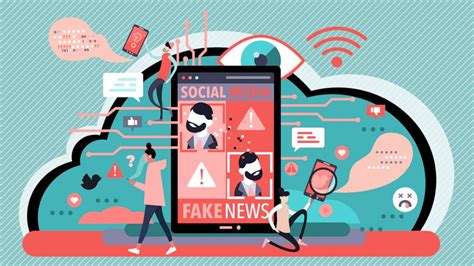In the digital age, the battle against misinformation has become one of the most significant challenges facing online platforms. Recent studies suggest that banning users who spread false information can enhance public discourse. However, this claim opens up a Pandora’s box of complex questions and ethical considerations. Community sentiment on this topic is deeply divided, reflecting broader societal debates about free speech, truth, and the role of social media in shaping political landscapes.
One prominent commenter, daft_pink, raises a crucial point about the definition of “false info.” Those familiar with fact-checking websites like Snopes or FactCheck.org may have noticed how narratives can be reframed or interpreted in ways that reflect inherent biases of the authors. This redefinition or selective framing may lead to distrust among the public, who could struggle to discern what qualifies as misinformation. A function like Twitter’s Community Notes (formerly Birdwatch) seems to address this issue by allowing community-driven fact-checking, thereby avoiding the pitfalls of centralized control. Yet, its effectiveness remains debated.
Others, such as pfisch, counter that the Community Notes system can be rendered ineffective by followers of popular figures who deliberately obscure the truth. The system’s underlying weakness is that it can be manipulated, especially when high-profile individuals like Elon Musk post false information without being moderated. This not only underscores how demagogues can exploit social media algorithms to amplify their message but also raises questions about the systemic flaws in current community-driven fact-checking initiatives.
The tension between free speech and misinformation isn’t confined to digital platforms. Jimmc414 points out that centralized censorship might infringe upon constitutional rights, such as the First Amendment. Historical context provides a sobering reminder: censorship is not limited to authoritarian regimes, as seen in cases like the dispersion of the Bonus Army nearly a century ago. These actions sometimes provoke more public outrage and skepticism towards central authorities.
Despite arguments against censorship, pfisch and others argue that our pre-social media era was more restrained by quality controls, mitigating the spread of harmful information. Critics like paleotrope argue that even during these times, centralized control didn’t necessarily lead to just outcomes, citing historical examples. The debate often boils down to whether centralized moderation (historically tied to intuitions like the FCC) should interfere in digital landscapes.
On the other hand, we find voices like those of nerdjon who believe identifying and combating misinformation can be less daunting than it seems. They argue that while all information doesn’t need to be unquestionably true, it’s vital to correct significantly false narratives. The feasibility of this approach also sparks discussions about repeated falsehoods, whether spread by genuinely deceived individuals or those with nefarious intentions.
Some arguments address the potential downside of heavy-handed approaches. Critics like heatray enjoyer suggest that true discourse isn’t about unanimity, but rather about healthy debates that include multiple perspectives. Taking out dissenting voices, even if misleading, might have chilling effects on free discourse which community regulation mechanisms need to balance.
Far from being merely an academic argument, this issue has practical and social implications. As emphasized by commenters like imiric and katbyte, the reality is that unchecked, coordinated misinformation campaigns can seriously undermine social structures and democratic institutions. Rigorous moderation and educational initiatives about technology and critical thinking can serve as a two-fold preventive mechanism against misinformation.
However, solutions are fragmented. While some propose robust AI-driven moderation or user-selectable filters, others feel that real-world interventions necessitate more nuanced approaches. Educating future generations, increasing digital literacy, and tightening regulations can collectively foster a more informed citizenry. Such multi-pronged strategies offer promises but also involve lingering uncertainties about their execution and societal acceptance.
In conclusion, the debate over banning false information traffickers online continues to evolve, bringing to light the intricate balance between safeguarding free speech and protecting the public from misinformation. As digital spaces become ever more integral to our lives, these conversations pave the way for shaping how we navigate the next frontier of public discourse.


Leave a Reply